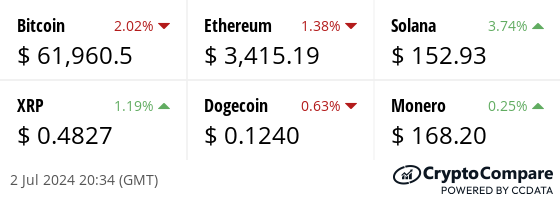On Wednesday, the U.S. Department of Justice announced charges against Keonne Rodriguez and William Lonergan Hill, founders of Samourai Wallet, for their alleged involvement in a large-scale money laundering operation that handled approximately $2bn in unlawful transactions since 2015.
The European Parliament has made a decisive move to tighten regulations on cryptocurrency operations within the EU. The newly adopted legislative package focuses on enhancing due diligence measures for crypto firms, particularly aiming to bolster identity checks and surveillance on suspicious activities.
A recently introduced bill in the U.S. Senate, the Payment Stablecoin Act, could significantly alter the landscape of the stablecoin market by encouraging banks to issue U.S. dollar-pegged stablecoins, according to a research note by S&P Global Ratings dated April 23.
Top stories in the Crypto Roundup today:
- U.S. DOJ Charges Samourai Wallet Founders with Money Laundering
- European Parliament Adopts New Regulations to Enhance Its Fight against Money Laundering
- New Senate Bill Could Reshape the U.S. Stablecoin Market, S&P Global Reports







